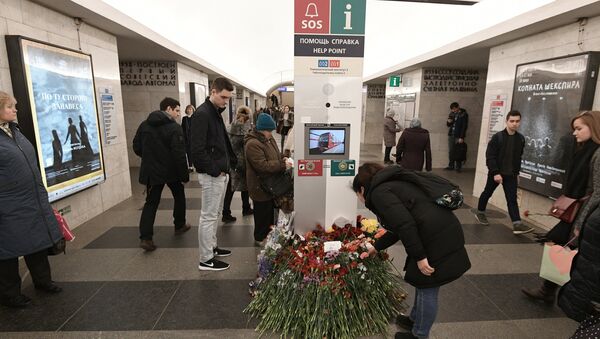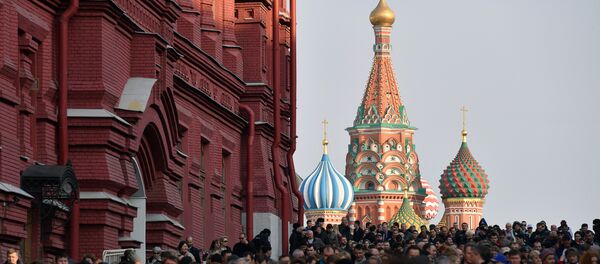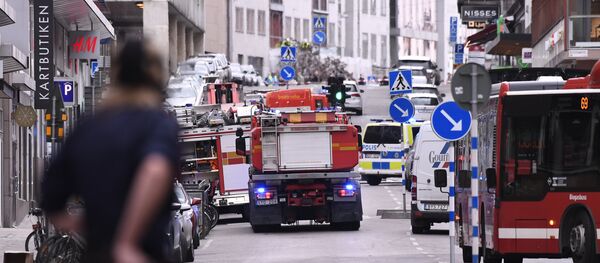The group took a bus from the airport to the city center, where they were supposed to transfer to the subway system. By that time, the bomb that 22-year-old Akbarzhon Jalilov was carrying had exploded on a train traveling from Sennaya Ploshchad to Tekhnologichesky Institut 2.
However, the group had no idea what had just happened. After a conversation on her mobile phone, the Russian student who was chaperoning them calmly told the visitors that the metro system wasn't working, and they would have to get taxis to their hotel instead.
"In fact, the 21-year-old knew very well why the trains were no longer running. About half an hour before we were supposed to transfer to the subway, a bomb exploded in one train of the same line, killing 14 people and injuring at least 50 others. Children were also among the victims."
"She had telephoned her professor and they had decided to take us from the immediate vicinity of the attack without agitating us, the student told us a few days later," Stoecker wrote in Der Spiegel.
Stoecker and his colleagues actually found out about the attack when information reached them from Germany.
"The way in which information reached us about an attack that had taken place a few kilometers away tells us a lot about the relation between terrorism, globalization and digital communications. All my fellow travelers received calls, WhatsApp messages or or urgent messages, some of them went quite pale. Within minutes, news of the deadly crime went from Russia to Germany and back again."
"At first glance, international terrorism profits enormously from the fact that every attack carried out in a modern city rapidly becomes news around the world.. terrorists can reach one goal more easily than ten or 20 years ago: attention," Stoecker wrote.
"The experience in St. Petersburg tells me that with regard to their second and probably more important goal, they are having less and less success: the goal of spreading fear and terror."
"On the day of the attack, the people of St. Petersburg were just as impassive as the student who had picked us up. In the days following, we saw people marveling, laughing, celebrating, discussing, working and walking. We talked with our Russian hosts about world politics, journalism, the media, education and everyday life. Of course the attack was not forgotten, but it didn't dominate everyday life or people's thoughts."
By way of explanation, a Russian journalism lecturer told the Germans, "We Russians are accustomed to grief."
That may be true, but Stoecker thinks there is more to it. People in cities across the world, not just in St. Petersburg, refuse to be cowed by terrorism.
"Possibly, this attitude is due not only to legendary Russian stoicism. The same is true for London, Berlin and all the other places where people have been killed in attacks. The residents of the urban area where the attack happened mourn the victims and feel a connection with the victims of attacks in other cities. After all, these acts are aimed at their common, global lifestyle. But they can't be deterred or intimidated. They refuse to let themselves be frightened. I think this refusal will become stronger, not weaker, with every further attack."
"I don't think this is a strategic action, but an instinctive one, and yet it is also probably the best method in the fight against terror: not to allow yourself to be terrorized. Because then the terrorists lose," Stoecker concluded.




